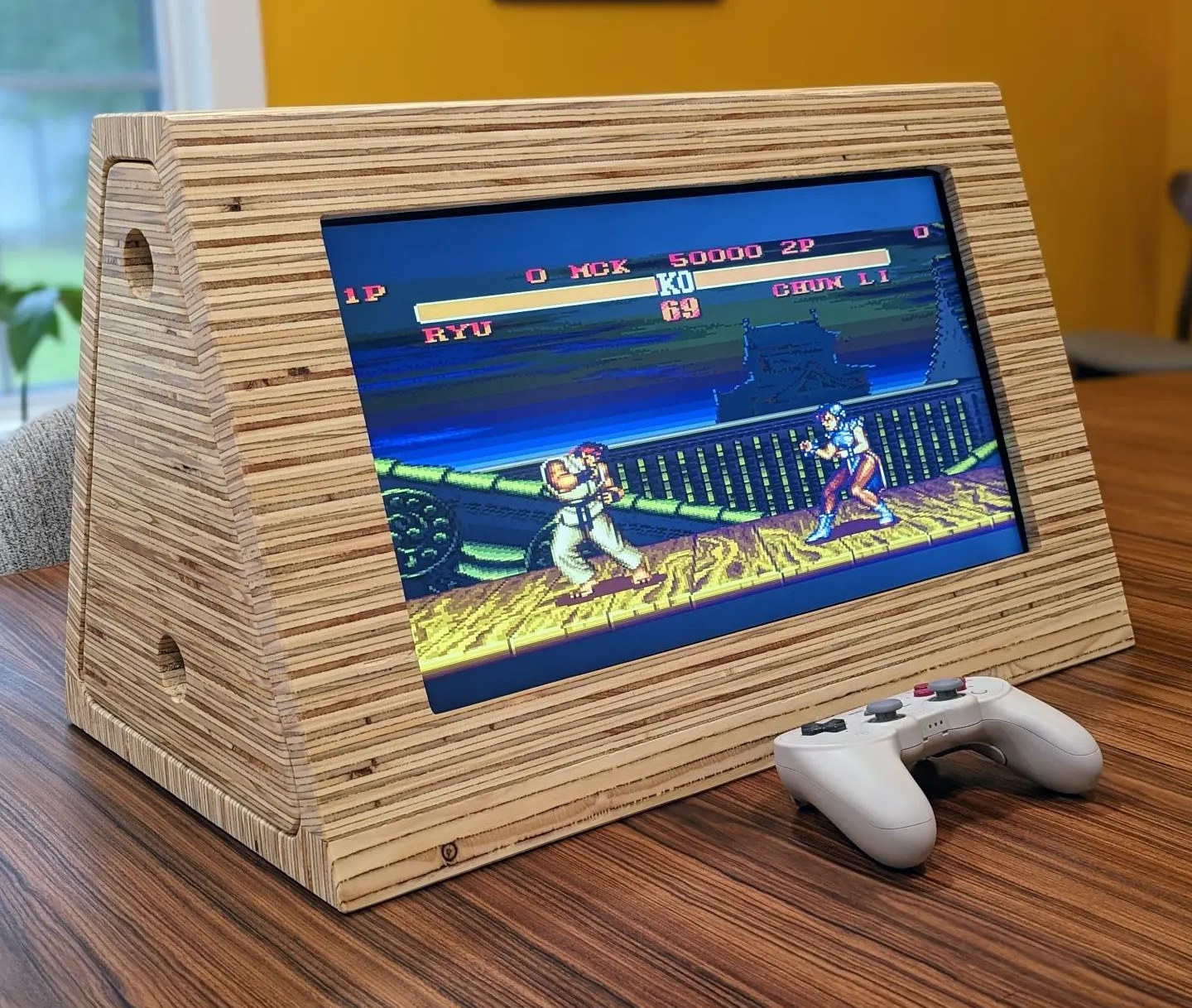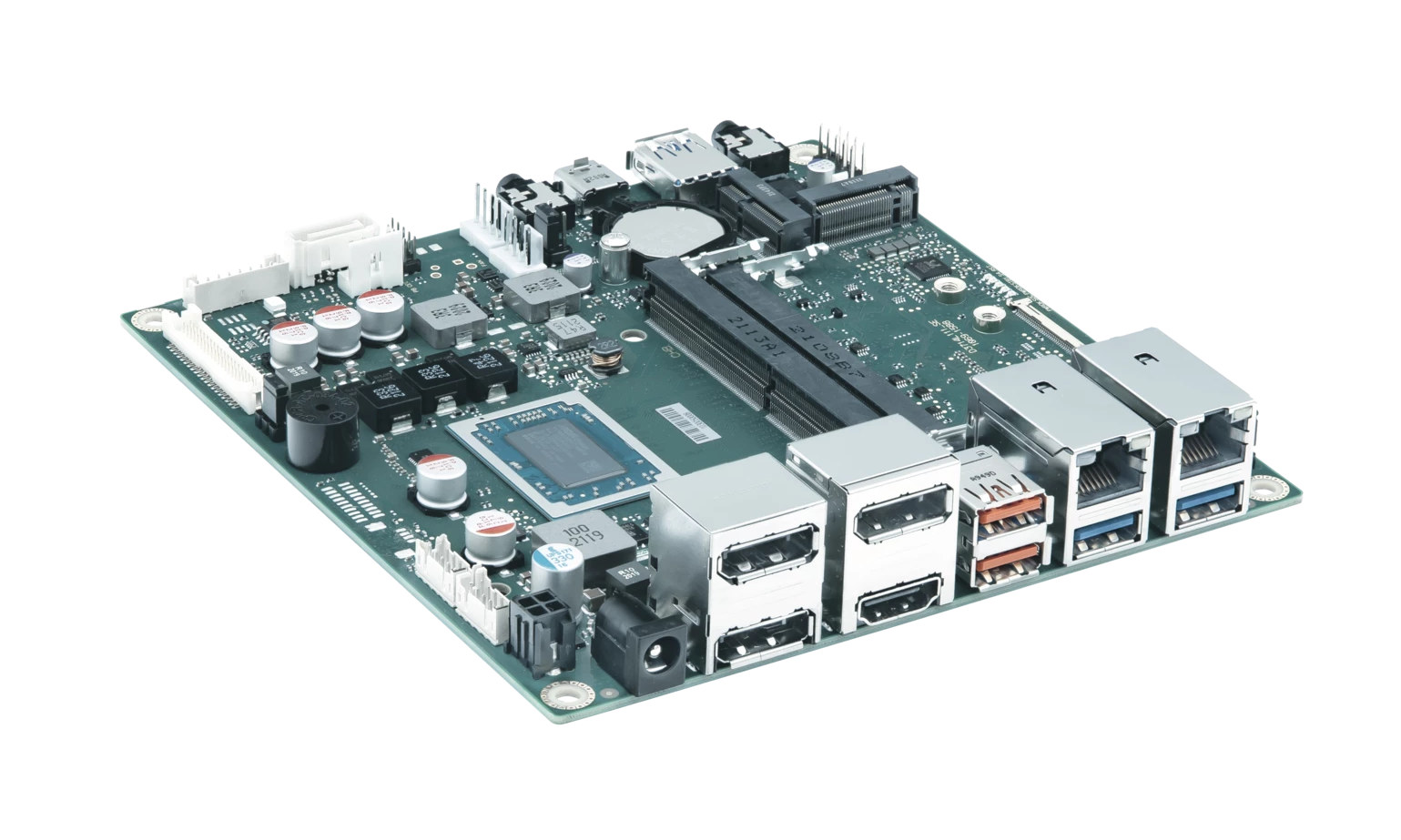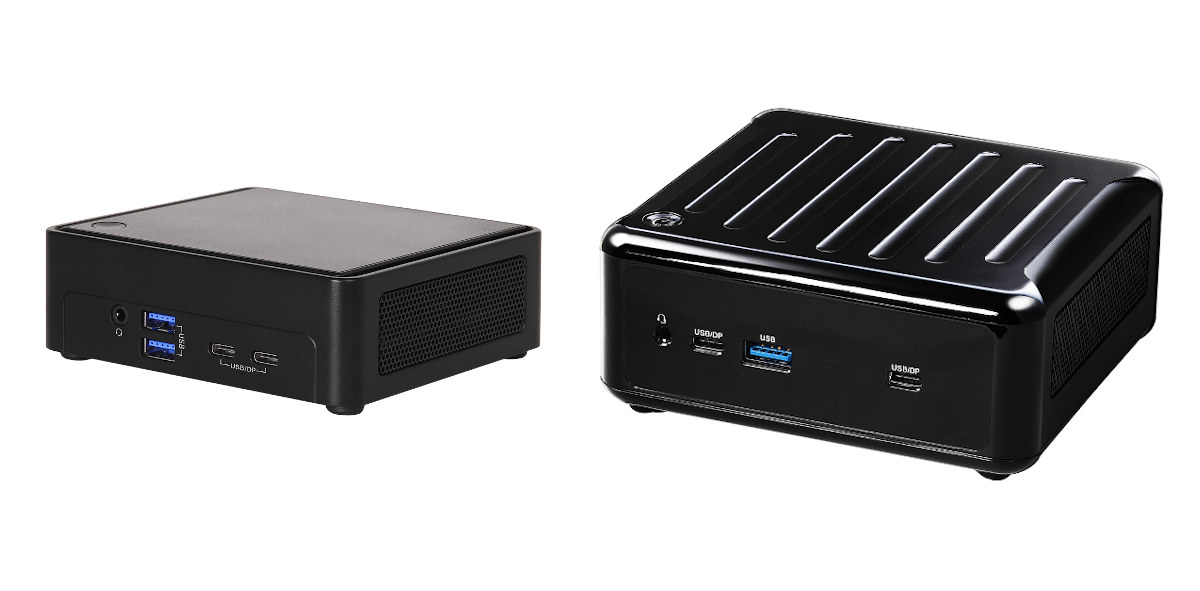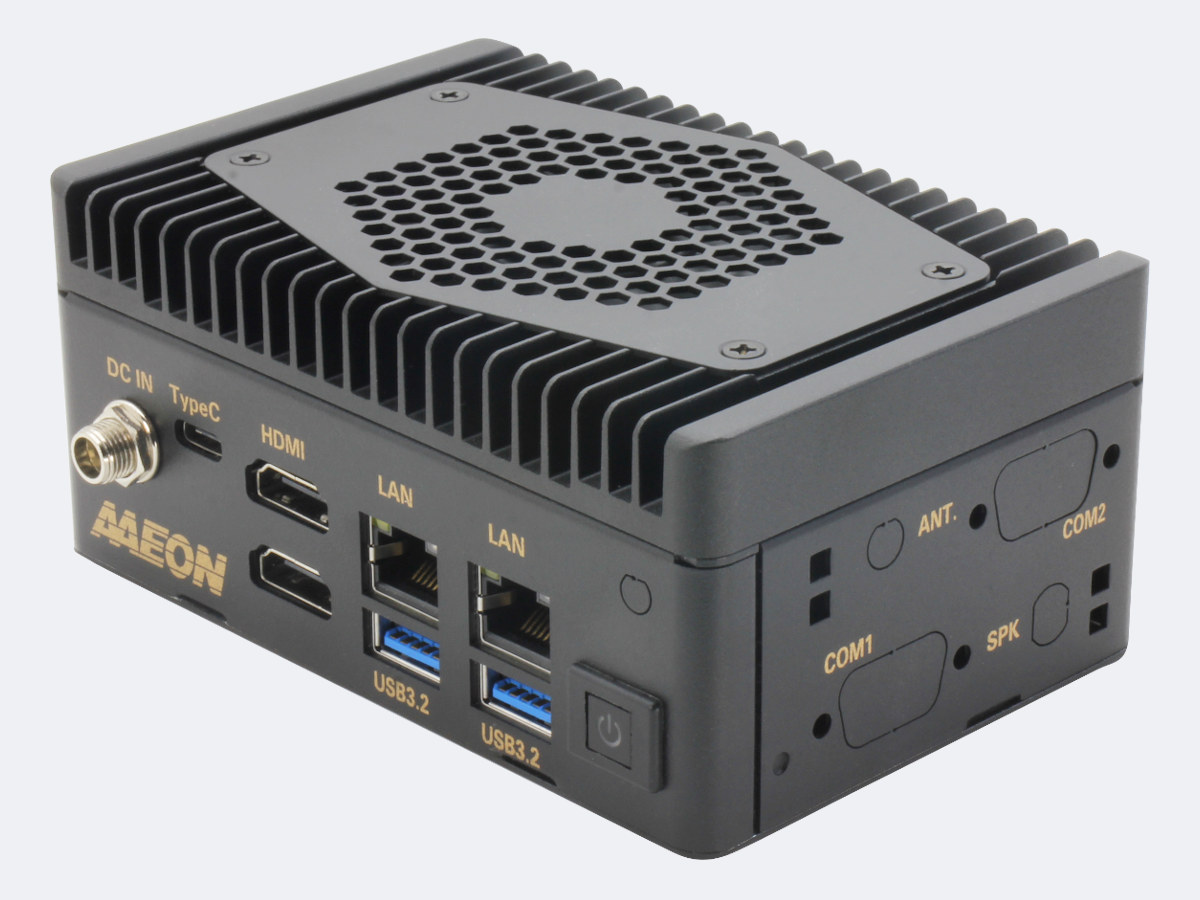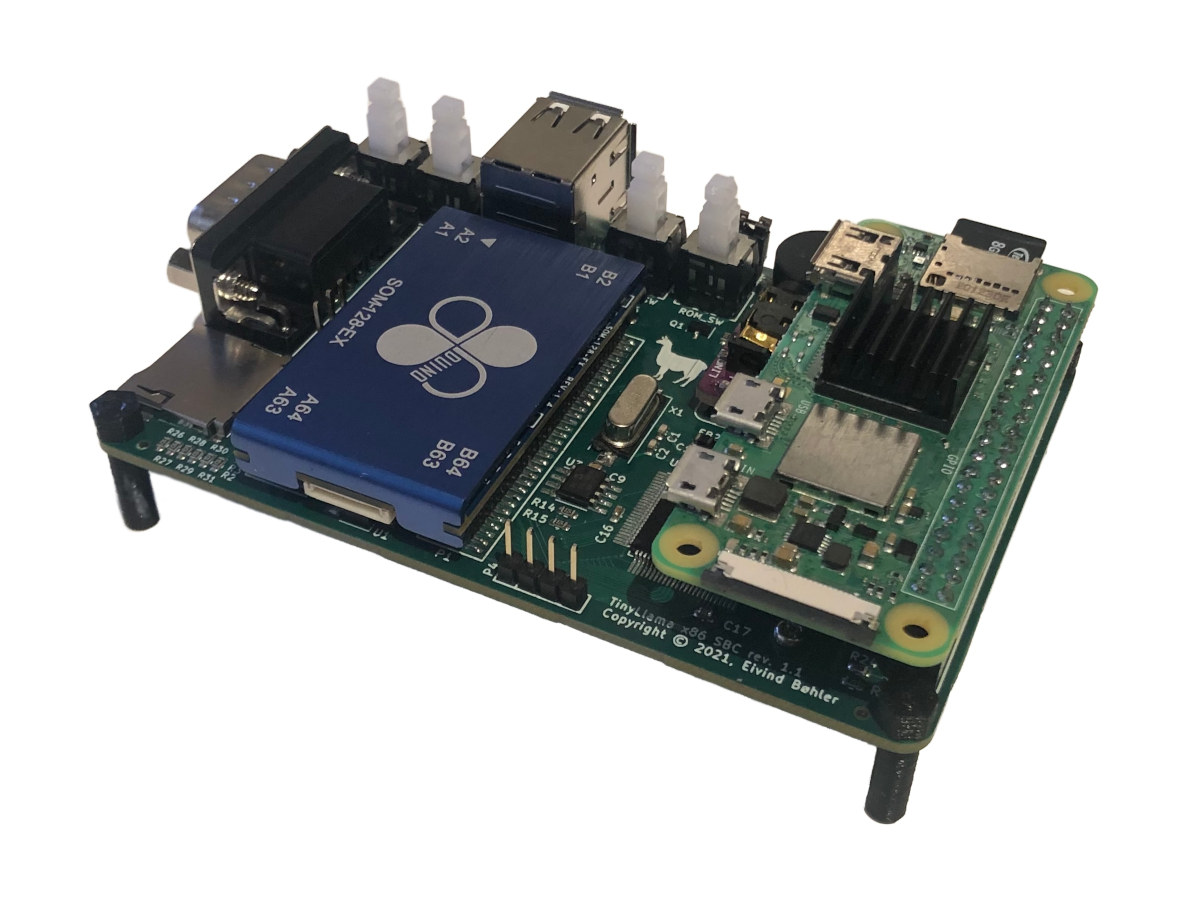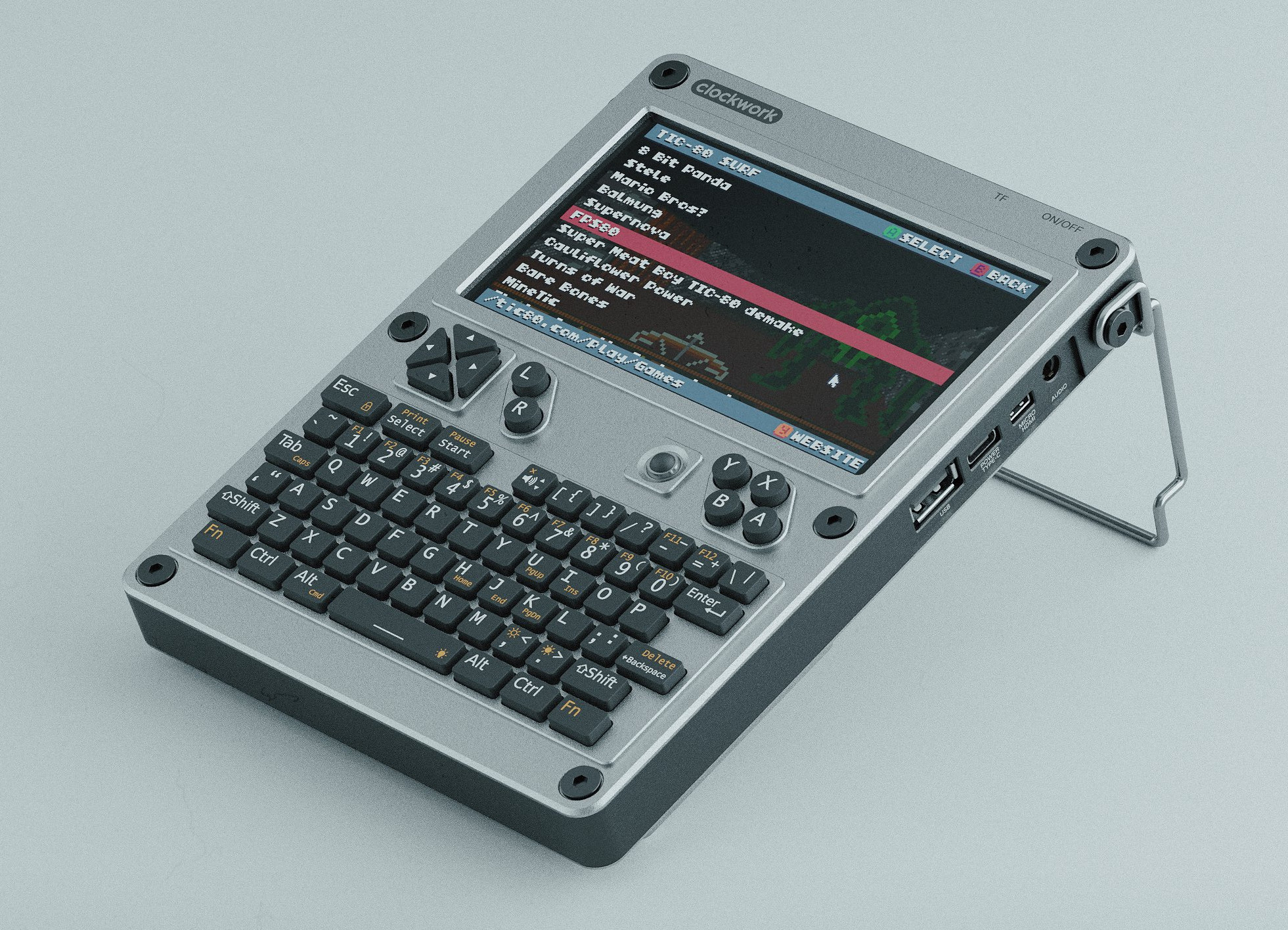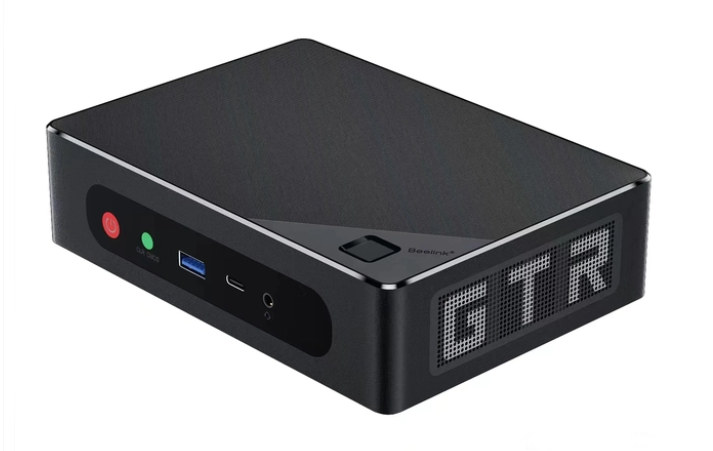The “Auspicious Machine” may look like a Blackberry phone, but it’s actually a handheld Linux PC with a built-in QWERTY keyboard and a 3.5-inch display that can be powered by a range of system-on-modules (SoM). The computer, whose name can also be translated as the “Auspicious Phone”, can be used as a Linux terminal with GPIO control, and for gaming with Linux distributions such as Batotera or RetroBat with the D-Pad and ABXY buttons found on the device. Auspicious Machine specifications: Supported SoMs Bigtreetech CB1 with Allwinner H616 quad-core Cortex-A53 processor and 1GB DDR4 Raspberry Pi CM4 with Broadcom BCM2711 quad-core Cortex-A72 processor, up to 8GB LPDDR4, up to 32GB eMMC flash Radxa CM3 with Rockchip RK3566 quad-core Cortex-A55 processor, up to 4GB LPDDR4, up to 64GB eMMC flash Banana Pi BPI-CM4 with Amlogic A311D octa-core Cortex-A73/A55 processor with 4GB LPDDR4 and 16GB eMMC flash Storage – MicroSD card socket […]
Raspberry Pi 400 powers dual-display retro-gaming console
“Block after Block” has designed a dual-display tabletop retro-gaming console using plywood edge grain and a Raspberry Pi 400 keyboard PC that allows players to physically face each other during a fight or other gameplay. While there’s a galore of projects based on Raspberry Pi SBCs, the Raspberry Pi 400 keyboard PC is more like a consumer product due to its form factor, but Block after Block integrated the PC into its own retro-gaming console which involved a lot of woodworking skills and installing RetroPie on the Pi 400 device. This DIY project mostly involves spending time in a workshop cutting wood, and once you’re done with this part, it should be pretty straightforward. The following items are required for the project: A Raspberry Pi 400 keyboard PC Two monitors (second-hand monitors will do) An HDMI splitter to mirror the output from the Pi 400 along with a micro HDMI […]
Kontron D3724-R mSTX – A Mini-STX motherboard based on Ryzen Embedded R2000 CPU
Kontron D3724-R mSTX is an upcoming industrial Mini-STX motherboard powered by an AMD Ryzen Embedded R2000 Series SoC and designed for applications with high graphical requirements such as casino gaming, medical displays, thin clients, and compact industrial PCs. The motherboard supports up to 32GB RAM, SATA & NVMe storage, and is equipped with up to three DisplayPort outputs, one HDMI port, as well as eDP and dual-channel LVDS interfaces to support up to four independent 4K displays. Kontron D3724-R mSTX specifications: SoC (One or the other) D3724-R1 – AMD Embedded R2312 dual-core/quad-thread processor @ 2.7 / 3.5 GHz (Turbo) with 3-core AMD Radeon Vega Graphics; 12-35W TDP D3724-R2 – AMD Embedded R2314 quad-core processor @ 2.1 / 3.5 GHz (Turbo) with 6-core AMD Radeon Vega Graphics; 12-35W TDP D3724-R3 – AMD Embedded R2514 quad-core/eight-thread processor @ 2.1 / 3.7 GHz (Turbo) with 8-core AMD Radeon Vega Graphics; 12-35W TDP System […]
ASRock NUC 1300 BOX/ NUCS 1300 BOX mini PCs are powered by Intel Raptor Lake-P mobile processors
ASRock Industrial NUC 1300 BOX and NUCS 1300 BOX series mini PCs are equipped with Intel 13th generation Raptor Lake-P mobile processors up to the Core i7-1360P 12-core hybrid processor with four Performance cores and eight Efficiency cores. Yesterday, we wrote about the ADLINK Express-RLP COM Express module based on Raptor Lake-P embedded or industrial processors, but ASRock decided to use Raptor Lake-P mobile processors in their industrial “fanned embedded box PCs” coupled with up to 64GB DDR5/DDR4 memory, and featuring high-speed interfaces such as USB4, 2.5GbE, and more. NUCS 1300 BOX Series Two NUCS 1300 Box models are available with either an Intel Core i7-1360P or i5-1340P processor. NUCS 1300 Box specifications: Raptor Lake-P SoC NUCS BOX-1340P/D4 – Intel Core i5-1340P 12-core (4P @ 1.9/4.6 GHz + 8E @ 1.4/3.4 GHz) processor with 80EU Intel Iris Xe Graphics; PBP: 28W, MTP: 64W NUC BOX-1360P/D4 – Intel Core i7-1360P 12-core […]
AMD Ryzen Embedded V2516/V2718 mini PC supports three 4K displays, 2.5GbE, RS232/RS422/RS485
AAEON PICO-V2K4-SEMI mini PC, powered by an AMD Ryzen Embedded V2516 or V2718 processor, can drive up to three 4K displays, offers 2.5GbE and GbE networking, several USB 3.2 ports, as well as two optional COM ports supporting RS232, RS422, and RS485. The first mini PC from the company featuring AMD Ryzen V2000 Series processors also comes with up to 32GB RAM, a 64GB NVMe SSD, as well as M.2 and mPCIe sockets for expansion, and its compact form factor makes it suitable for edge computing, embedded gaming, and image processing applications. PICO-V2K4-SEMI specifications: AMD Ryzen Embedded V2000 processor (one or the other) Ryzen V2718 octa-core/16-thread processor @ up to 1.7-4.15 GHz (Turbo) with Radeon RX Vega 7 GPU; TDP: 10-25W Ryzen V2516 hexa-core/12-thread processor @ up to 2.1-3.95 GHz (Turbo) with Radeon RX Vega 6 GPU; TDP: 10-25W System Memory – 8GB to 32GB LPDDR4x 3733 MHz Storage Up […]
TinyLlama x86 retro computer uses the Raspberry Pi Zero 2 W as a MIDI synthesizer
The TinyLlama x86 retro computer board is designed to run DOS games on a DM&P Vortex86EX 32-bit x86 processor and integrates a MIDI synthesizer based on Raspberry Pi Zero 2 running MT32-Pi firmware. Growing up playing games on 386/486-era computers, Eivind Bohler looked for similar recent hardware to play DOS games and after discovering the 86Duino x86 Arduino-compatible board, he decided to use the SOM-128-EX module powering the board to create the TinyLlama board with a Sound Blaster Pro-compatible Crystal CS4237B sound chip and a MIDI synthesizer. TinyLlama specifications: D&MP SOM-128-EX system-on-module with Processor – DM&P Vortex86EX 32-bit x86 processor @ 60 to 500 MHz System Memory – 128MB DDR3 Storage – 8MB SPI flash Storage – MicroSD card socket Video Output – VGA up to 1024×768 @ 60 Hz using the Vortex86VGA module running off an x1 PCI-e lane Audio Crystal CS4237B all-in-one audio chip MIDI synthesizer with Raspberry Pi […]
uConsole is a modular Arm or RISC-V handheld computer with optional 4G connectivity
Clockwork’s uConsole is a modular handheld computer with a 5-inch display, a built-in keyboard, and based on a carrier board supporting various Arm or RISC-V modules compatible with the Raspberry Pi CM3 or CM4 form factors. The device is offered with a system-on-module with up to 4GB RAM, a WiFi 5 and Bluetooth 5.0 wireless module, features micro HDMI video output, USB ports, and an audio jack, plus expansion connectors for more advanced users, and takes two 18650 batteries for power. The company also offers a 4G LTE module for cellular connectivity. The mainboard, called ClockworkPi v3.14 revision 5, offers the following: System-on-module socket – 200-pin DDR2 SODIMM socket compatible with Raspberry Pi CM3 and, through an adapter, Raspberry Pi CM4 and compatible modules Storage – MicroSD card socket Video Interfaces 40-pin MIPI DSI connector micro HDMI interface for external display Audio – 3.5mm audio jack with headphone and microphone […]
Beelink GTR6 mini PC packs an AMD Ryzen 9 6900HX processor, up to 64GB RAM
Beelink GTR6 is a mini PC powered by a 45W AMD Ryzen 9 6900HX octa-core/16-thread processor @ up to 4.9 GHz with 12-core Radeon 680M graphics, taking up to 64GB DDR5, and M.2 2280 PCIe Gen4 SSD storage. Once upon a time mini PCs were powered by low-power processors for fanless or near-silent operation, but in recent years, companies have started to integrate faster and faster powerful into the mini PC form factor. The Beelink GTR6 may be one of the most powerful mini PC so far thanks to the AMD Ryzen 9-6900HX CPU. Beelink GTR6 preliminary specifications: SoC – AMD Ryzen 9 6900HX octa-core/16-thread Zen 3+ processor @ up to 3.3 GHz / 4.9 GHz (Turbo) with 12-core Radeon 680M graphics (RDNA2 architecture) @ up to 2.4 GHz; TDP: 45W System Memory – 2x DDR5-4800MHz SODIMM sockets for up to 64GB RAM (32GB by default) Storage M.2 2280 NVMe […]



